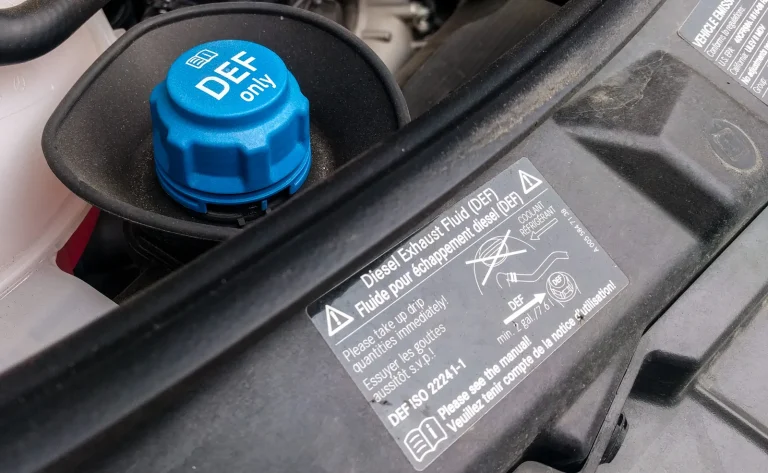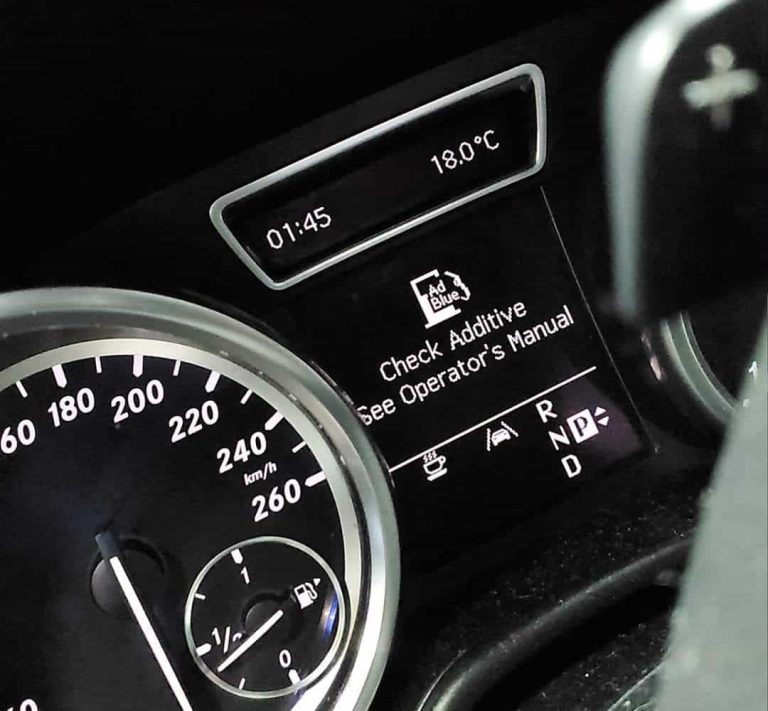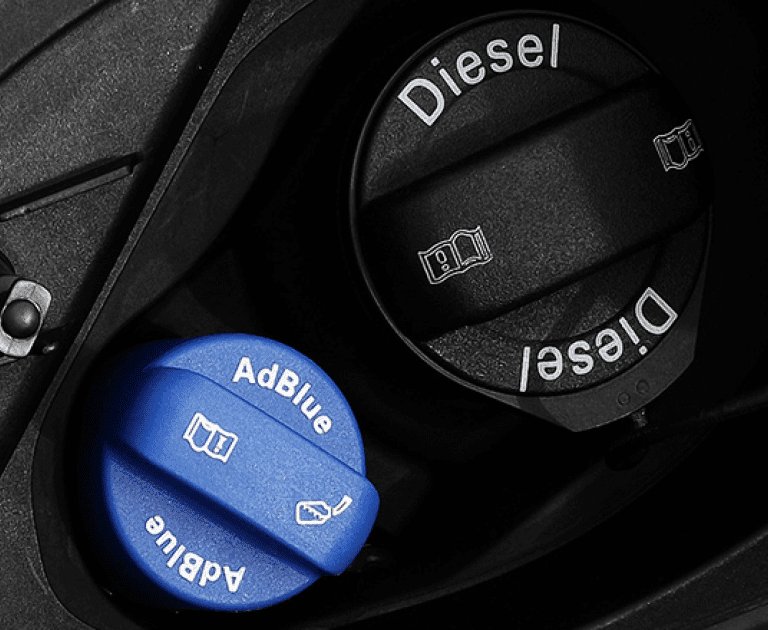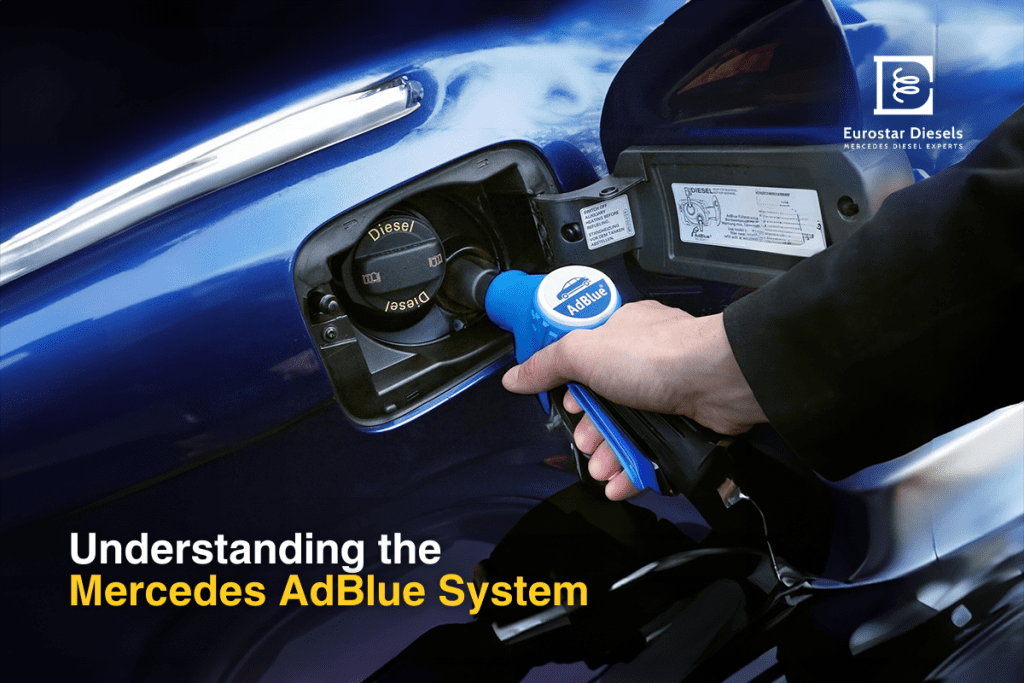In the realm of modern automotive engineering, manufacturers are continually innovating to create vehicles that are not only powerful and efficient but also environmentally friendly. Advanced technology that has emerged in recent years is the AdBlue system, particularly prominent in Mercedes-Benz vehicles. Understanding how this system works and why it’s essential, sheds light on the ongoing efforts toward cleaner emissions and sustainable transportation solutions.
What is AdBlue?
AdBlue is a trademarked term for a diesel exhaust fluid (DEF) used in vehicles with Selective Catalytic Reduction (SCR) systems to reduce harmful emissions. SCR technology is designed to lower the levels of nitrogen oxide (NOx) emitted by diesel engines, which are a significant contributor to air pollution.
The AdBlue fluid itself is a non-toxic, colourless solution of urea and deionised water. When injected into the exhaust stream, the ammonia within the urea reacts with NOx in the catalytic converter, converting it into harmless nitrogen and water vapour. This chemical process is essential for meeting stringent emissions standards, such as Euro 6 in Europe.

How Does the Mercedes AdBlue System Work?
Mercedes-Benz vehicles equipped with SCR technology feature an AdBlue tank and dosing system integrated into the exhaust system. Here’s a simplified overview of how the system functions:
- AdBlue Tank: The vehicle has a dedicated AdBlue tank, typically located near the fuel tank, but sometimes in the engine bay. This tank stores the DEF fluid, which is consumed gradually during engine operation.
- Dosing Module: A dosing module, often located close to the catalytic converter, injects precise amounts of AdBlue into the exhaust system based on engine operating conditions. This controlled dosing ensures optimal NOx reduction without wasting the fluid.
- SCR Catalyst: As the AdBlue mist enters the SCR catalyst, it triggers a chemical reaction that converts harmful NOx gases into harmless nitrogen and water. This process occurs in real-time as the vehicle is in operation.
- Monitoring System: Modern Mercedes vehicles are equipped with sensors and monitoring systems that constantly check AdBlue levels, system functionality, and DEF quality. Drivers are typically alerted when AdBlue levels are low, ensuring timely refills to maintain emission compliance.
Why is the AdBlue System Important?
- Emissions Compliance: The primary purpose of the AdBlue system is to help diesel vehicles comply with strict emissions standards. By significantly reducing NOx emissions, vehicles equipped with SCR technology can meet or exceed regulatory requirements, contributing to cleaner air quality.
- Environmental Impact: Lowering NOx emissions has a direct positive impact on the environment. NOx compounds contribute to air pollution and can harm human health. The AdBlue system plays a vital role in mitigating these environmental risks associated with diesel-powered vehicles.
- Fuel Efficiency:While AdBlue consumption adds an extra fluid to manage, the SCR technology’s efficiency can lead to improved fuel economy in diesel engines. By optimising combustion and reducing the need for exhaust gas recirculation, SCR-equipped vehicles can achieve better mileage and lower overall operating costs, with the use of a good quality AdBlue.
- Performance: SCR systems contribute to the performance of diesel engines, by using a high quality AdBlue, it ensure that the SCR operates optimally, still reducing emissions while not compromising engine power.

Maintenance and Refilling
For Mercedes-Benz owners, proper maintenance of the AdBlue system is essential to ensure optimal performance and emissions compliance. Here are some key points regarding AdBlue refilling and system maintenance:
- Refilling: AdBlue tanks have varying capacities, typically ranging from several litres to over 20 litres, depending on the vehicle model. Drivers are alerted when AdBlue levels are low, and refilling is a relatively straightforward process, with bottles available at most petrol stations.
- Quality and Handling: It’s crucial to use high-quality AdBlue fluid to prevent contamination and ensure the system operates as intended. Using non-compliant or diluted fluids can lead to system malfunctions and potential damage.
- Service Intervals: Mercedes-Benz vehicles typically include AdBlue system checks and refills as part of regular maintenance schedules. Following manufacturer recommendations for service intervals helps maintain system integrity and emission control efficiency.

In Conclusion
The Mercedes AdBlue system represents a significant advancement in automotive technology, focusing on emissions reduction and environmental sustainability. By understanding how AdBlue works and its importance in diesel vehicles, drivers can appreciate the role they play in producing cleaner air. The AdBlue system is not just a technical feature but a symbol of progress towards a cleaner and more efficient automotive industry. By embracing such technologies, we contribute to a better environment and set the stage for a brighter future for generations to come.
At Eurostar Diesels, we offer comprehensive service packages specifically for Mercedes Diesel vehicles such as Sprinter and Vito Vans, as well as diesel-powered SUV’s and Passenger Cars.
Our major service package includes digital vehicle inspection, engine oil and filter change, a comprehensive vehicle safety check including brakes, lights, suspension and underbody and a whole lot more.
Book your appointment at our website today or call our office: 03 8795 7997 (Hallam) or 03 9088 8980 (Sunshine West) to speak with our friendly team.
